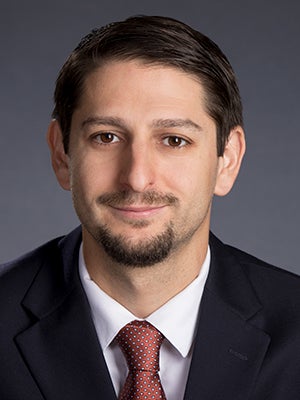“Educator Voices Across Texas” is a series that explores the educator’s experience across the Lone Star State. Each story shines a light on the people and voices behind the success of our children, schools and communities.

Every community—and every student—deserves skilled, high-quality district and school leaders. Because the best superintendents and principals are trained and prepared to not only create, but sustain the conditions for teachers and students to be successful—making a first-class education more accessible for everyone. But as the second largest state in the country, with more than 1,200 urban, rural, and suburban districts, not every community in Texas benefits from the same level of education leadership.
To begin addressing this intricate issue, The Holdsworth Center, an Austin-based nonprofit dedicated to strengthening educational leadership, in partnership with David DeMatthews, Ph.D., associate professor in the Department of Educational Leadership and Policy, recently established the Texas Education Leadership Project (TELP)—a collaborative research effort focused on providing useful insights about the educational leadership pipeline in Texas.
Over the next year, the TELP team involving Drs. Alexandra Aylward and Pedro Reyes from the University of Texas at Austin, Dr. David Knight from the University of Washington, alongside experts from The Holdsworth Center will publish three reports analyzing the current teacher-to-principal-to-superintendent pipeline, and start to answer pressing questions around demographics, trends, and more.
Looking back at the past ten years of data, the research will offer truly first-of-a-kind insights into Texas public schools—informing future policy and practice in a meaningful way.
We spoke with Dr. DeMatthews to learn more about the forthcoming research, some exciting potential outcomes, and ultimately, what inspires him to do this work.
I started TELP because I believe district and school leadership is critical to providing a high-quality education. Unfortunately, many Texas students attend schools with inexperienced and struggling teachers and principals that make school improvement difficult, particularly amid a global pandemic and the Great Resignation.
A lot of focus before and during the pandemic has been on training, supporting and retaining teachers because teachers are so important to student success. However, many policymakers overlook the role superintendents and principals play in leading organizations and shaping working conditions that support teachers so they can be successful and stay on the job. In short, effective superintendent and principal leadership and stability are important to supporting teachers and advancing student success.
I began researching effective principals in challenging urban and rural schools in 2013 after working as a teacher and administrator in Baltimore City and the District of Columbia. I found that well-trained, equity-focused principals could make a meaningful difference on their campuses and improve outcomes for all students, especially if they had support from their superintendent.
However, I noticed that some of the most effective principals were not staying on the job very long, which threatened their school’s improvement. I also saw a constant churn of superintendents which meant schools were not receiving consistent support. I began working with Dr. David Knight and Dr. Pedro Reyes to examine principal turnover and burnout throughout Texas. This work led me to recognize that Texas needed an annual study to assess and monitor the principal and superintendent workforce. And The Holdsworth Center became a natural partner given its strongly-held recognition that improving public education for Texas students means supporting and developing educational leaders.
Every Texan wants a high-quality education for their community’s children. I have two primary goals as a researcher at UT Austin working in service to the state.
First, I want every Texan to understand the importance of district and school leadership and the problems and inequities within the pipeline. Although we are just getting started, we can already see that women and people of color are often denied access to the superintendency and paid at lower rates in comparison to their white and male peers, which means districts and schools are missing out on the leadership of many talented individuals. We can also see that some urban and rural communities, particularly those serving higher proportions of low-income students and students of color, are most likely to have the least experienced teachers and principals.
Given these findings, the second goal of this research is to provide state policymakers, school boards, and philanthropic organizations with practical insights into where they can make investments to bolster the state’s educational leadership pipeline and how they can disrupt districts and schools that have been destabilized by high rates of teacher, principal, and superintendent turnover.
I am inspired by the belief that public reporting on the state’s superintendent and principal pipeline will lead to improved outcomes for all students, including those who have been historically marginalized. I’m optimistic that our state will use our findings to bolster the state’s educational leadership pipeline and make strategic investments that ensure a well-trained and experienced superintendent and principal is in every district and school.
Stay tuned for updates on the Texas Education Leadership Project and its findings.

